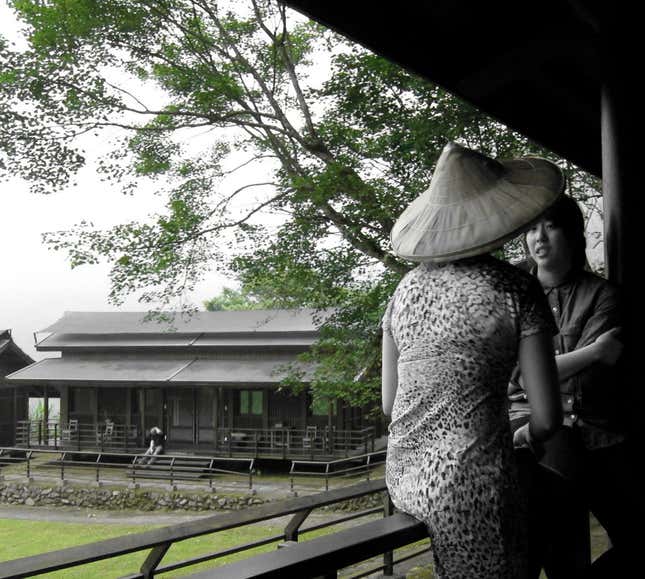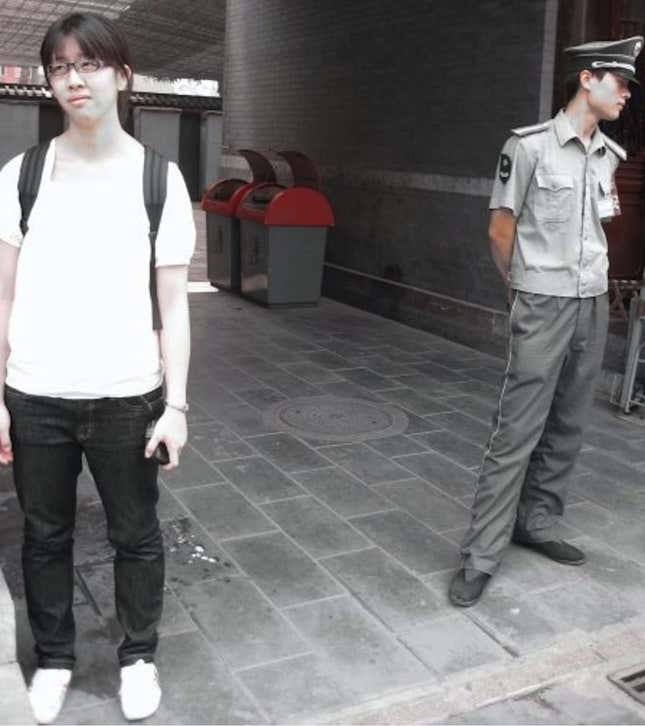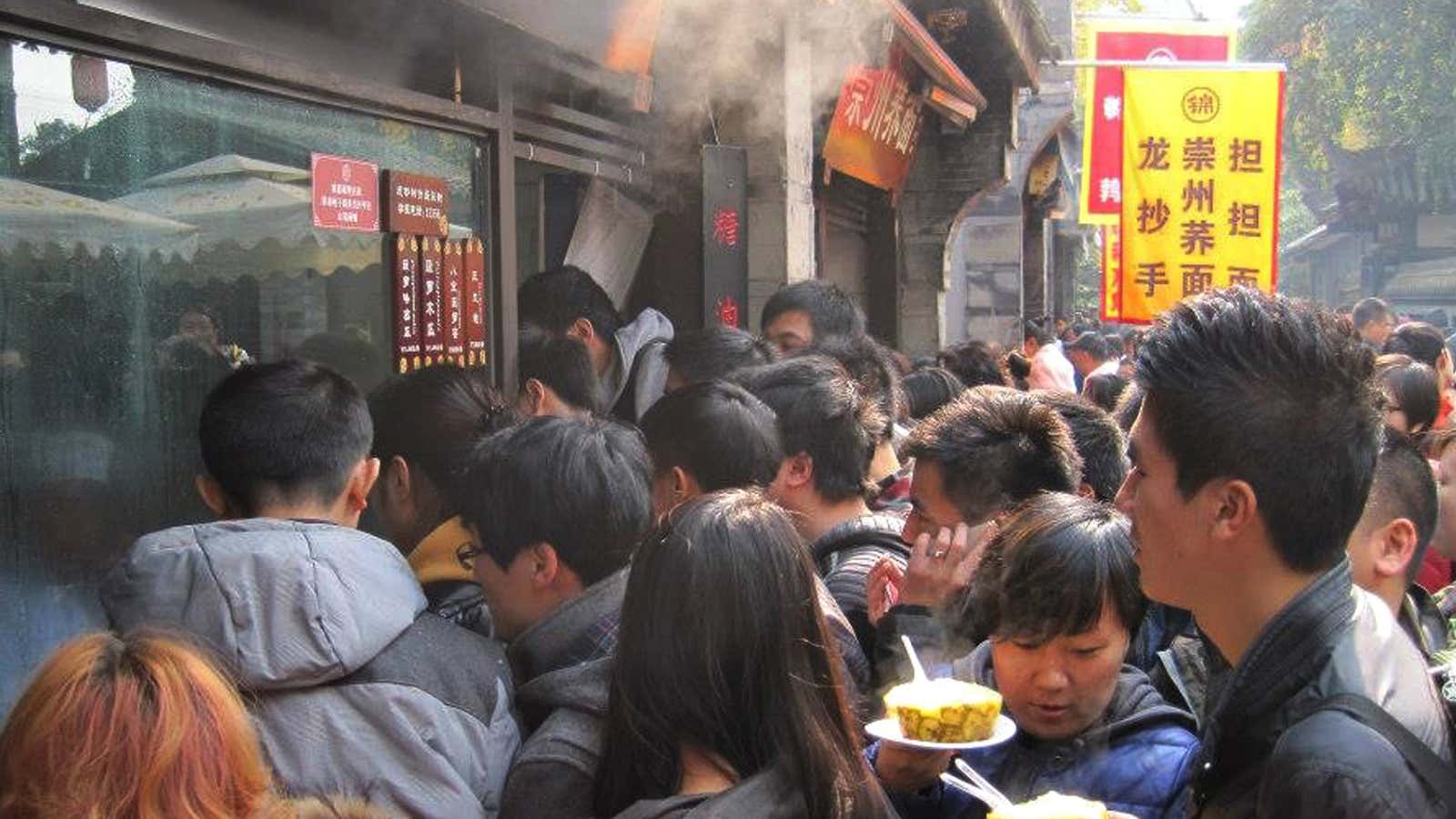Korean?
No.
Japanese?
No.
… Hong Kong?
No. Canada.
And that’s usually where I lose people.
For the past year I have lived and studied in Beijing, China, and for the past year I have had this conversation, nearly verbatim, countless times. With taxi drivers. With bubble tea vendors. With my professors and tutors. With local friends. None of them seem able to fully wrap their heads around it.
My parents are both from Taiwan, I try to explain, but I was born and raised in Canada.
“Oh,” they pause, hinting momentarily at comprehension. “But you look so Chinese.”
I know I look Chinese. Before I came to China, I thought it was because I was Chinese. It had never occurred to me that holding a foreign passport disqualified me from that birthright. But for Chinese people—those whose government papers match their face—race, language, culture, and nationality are inextricably intertwined. The summertime row over the Diaoyu (NOT Senkaku) Islands and the ensuing outburst of ultra-nationalistic fervour was evidence of just how rigidly China still defines and defends its identity. Lacking the necessary “Chinese” mix made me as foreign, and possibly even more alien, than the blond-haired, blue-eyed creatures instantly recognized as “other.”

Admittedly, I had a fairly non-traditional Chinese upbringing. Unlike many of my second-generation peers, my childhood was not dominated by an overbearing Tiger Mother who browbeat me into excellence—she used the much tamer though still efficiently Chinese method of bribing good grades out of my sister and me. I was allowed to quit piano without becoming a prodigy; I became bilingual in English and French, not Chinese; and I grew up celebrating Chinese New Year with as much indifference as Christmas. I am also bad at math.
Far from becoming culturally confused or isolated though, I felt perfectly at ease with my hyphenated heritage. No one ever teased me about my accent or questioned my ethnic authenticity.
That is, not until I moved to China.
On paper, it seems like I should have the best of both worlds: the physical credentials to gain entry into the inner circle of Chinese locals as well as the visa status to enjoy the comforts of expatriate life, without the frustrating label of ‘laowai‘ (foreigner) hanging over me. However, the opposite has come true. Rather than finding community everywhere, I seem to fit nowhere.
In my time in Beijing, I have studied Mandarin intensively and tried to immerse myself in the culture; I even find myself growing alarmingly comfortable with the constant pushing, yelling, spitting, squatting, hustling, and bustling of daily Chinese life. But as much as I try to become like my Chinese kin, living here has made me realize just how stark the differences are between the ancestral family I want to bond with and the actual homeland I belong to.
It’s not just that I don’t share any common cultural reference points with local Chinese, but also that our life experiences and how we experienced them are literally worlds apart.
Although I have had many interesting conversations with Chinese people, it has never felt like more than just words being spoken toward each other. Even on the most global topics like love and money, there is very little in their stories or mine that the other side can grasp hold of. It is only with fellow foreigners that I can relate and empathize about childhood memories, family relationships, and future aspirations.

While language and culture put me in the minority, it is not a visible minority. Ironically, just as my Chinese looks cause much consternation among locals, it causes indifference among the countrymen I psychically reach for. I disappear in the crowd: just another Chinese face in the sea of presumed strangers. The camaraderie shared among foreigners—the exchanges of knowing glances or sympathetic smiles that say, “I feel the same way; I’m there with you”—eludes me. Instead, with over-enunciated enthusiasm, I have repeatedly been told, “Your English is so good.”
Of course, my experience is not unique. Rough estimates put the number of overseas Chinese at close to 47 million worldwide, and I am clearly not the only one who has decided to venture back. My experience is also not universal. Among us descendants of Chinese immigrants, there is a wide spectrum of acculturation. Some are raised as if they never left China, only in a different country. Others come to China and discover they are more at home here than where they were born.
I likely sit on the far edge of assimilation. In China, I have found adventure and opportunity, but so far no sense of place. I wonder if that could change. If I live here long enough, study the language hard enough, want it bad enough, will I finally feel Chinese enough? Will the questions about my looks and language go away? Will I ever just be Chinese?
